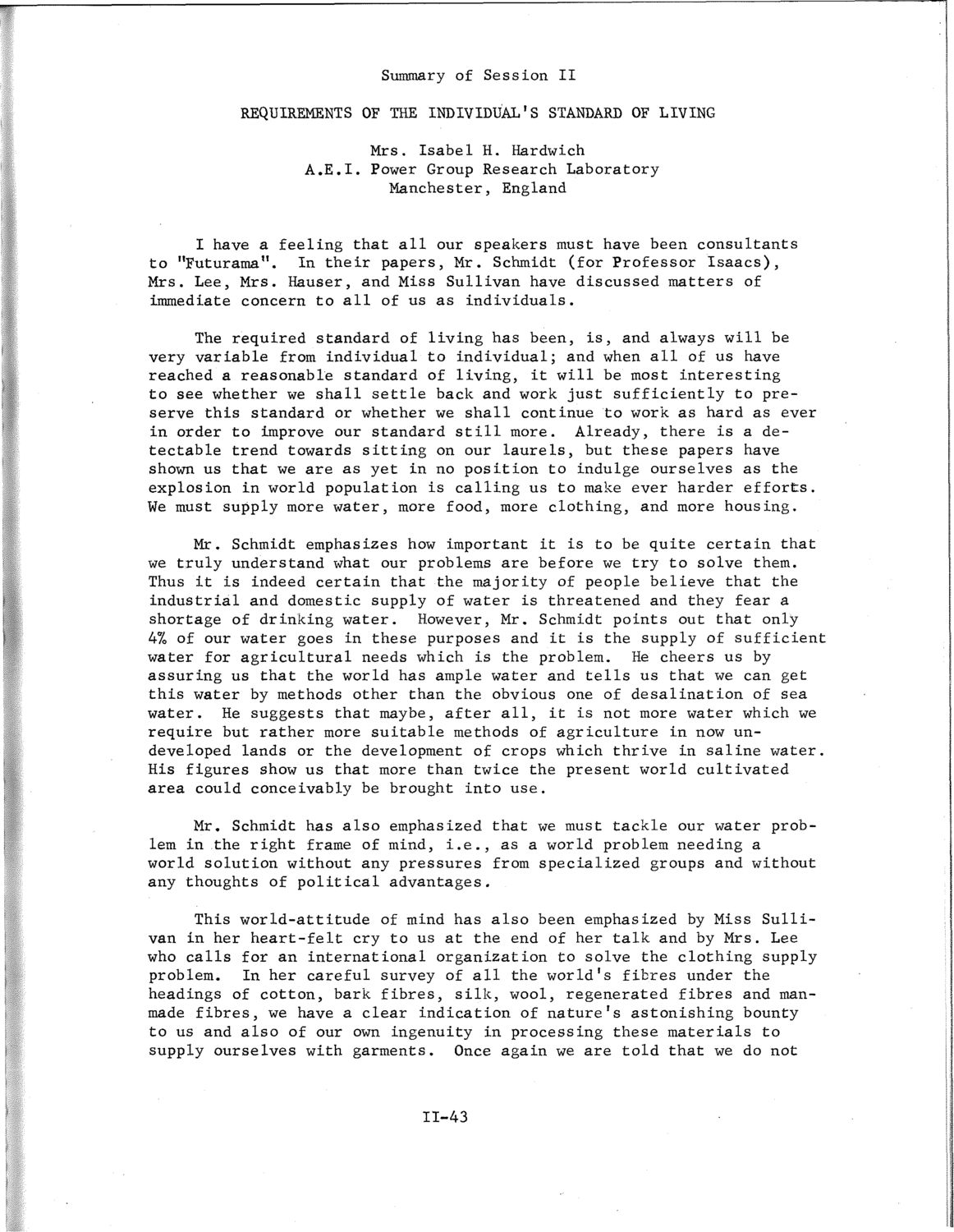| |
| |
Caption: SWE - Proceedings of the First International Conference of Women Engineers and Scientists
This is a reduced-resolution page image for fast online browsing.

EXTRACTED TEXT FROM PAGE:
Summary of Session II REQUIREMENTS OF THE INDIVIDUAL'S STANDARD OF LIVING Mrs. Isabel H. Hardwich A.E.I. Power Group Research Laboratory Manchester, England I have a feeling that all our speakers must have been consultants to "Futurama". In their papers, Mr. Schmidt (for Professor Isaacs), Mrs. Lee, Mrs. Hauser, and Miss Sullivan have discussed matters of immediate concern to all of us as individuals. The required standard of living has been, is, and always will be very variable from individual to individual; and when all of us have reached a reasonable standard of living, it will be most interesting to see whether we shall settle back and work just sufficiently to preserve this standard or whether we shall continue to work as hard as ever in order to improve our standard still more. Already, there is a detectable trend towards sitting on our laurels, but these papers have shown us that we are as yet in no position to indulge ourselves as the explosion in world population is calling us to make ever harder efforts. We must supply more water, more food, more clothing, and more housing. Mr. Schmidt emphasizes how important it is to be quite certain that we truly understand what our problems are before we try to solve them. Thus it is indeed certain that the majority of people believe that the industrial and domestic supply of water is threatened and they fear a shortage of drinking water. However, Mr. Schmidt points out that only 4% of our water goes in these purposes and it is the supply of sufficient water for agricultural needs which is the problem. He cheers us by assuring us that the world has ample water and tells us that we can get this water by methods other than the obvious one of desalination of sea water. He suggests that maybe, after all, it is not more water which we require but rather more suitable methods of agriculture in now undeveloped lands or the development of crops which thrive in saline water. His figures show us that more than twice the present world cultivated area could conceivably be brought into use. Mr. Schmidt has also emphasized that we must tackle our water problem in the right frame of mind, i.e., as a world problem needing a world solution without any pressures from specialized groups and without any thoughts of political advantages. This world-attitude of mind has also been emphasized by Miss Sullivan in her heart-felt cry to us at the end of her talk and by Mrs. Lee who calls for an international organization to solve the clothing supply problem. In her careful survey of all the world's fibres under the headings of cotton, bark fibres, silk, wool, regenerated fibres and manmade fibres, we have a clear indication of nature's astonishing bounty to us and also of our own ingenuity in processing these materials to supply ourselves with garments. Once again we are told that we do not 11-43
| |